What is the Goal of Testimonial Marketing?
Testimonial marketing is the art of harnessing positive customer experiences to promote a brand, product, or service.
Reviews provide the social proof needed to instil trust and credibility among potential customers, leading to increased conversions and sales.
There is no advertisement as powerful as a positive reputation traveling fast. Brian Koslow
The goal of testimonial marketing is to connect your brand with potential customers by showcasing real-life success stories.
And guess what? It appears to be highly effective!
Reports reveal that 92% of consumers consult online reviews and testimonials when contemplating a purchase.
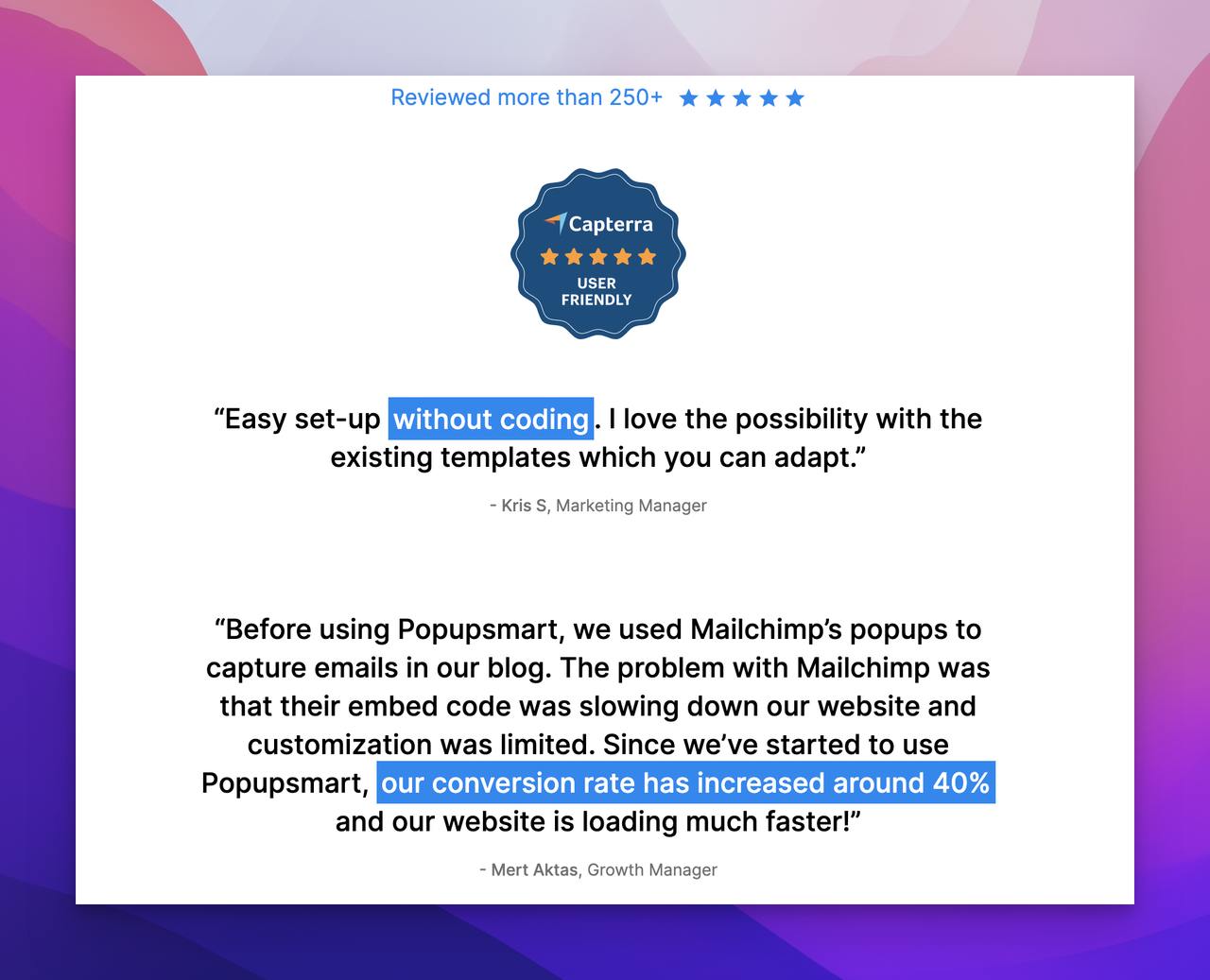
Even more impressive, 72% of consumers admit that positive reviews and testimonials significantly boost their trust in a business.
Remember that people influence people, and interestingly 88% of users place as much trust in online reviews as they do in personal recommendations from their friends.
By leveraging the power of satisfied customers' voices, your business can foster trust, build credibility, and resonate with its target audience, ultimately driving success and growth.
How to Use Customer Reviews in Marketing?
A customer sharing their experience with you holds ten times more value than anything you could say about yourself.
So, when you're fortunate enough to receive a testimonial from a happy customer, it's essential to make the most of it and let it shine.
In this heartwarming guide, we'll reveal the top strategies for leveraging customer reviews and showcase some genuinely inspiring testimonial examples in advertising.
1. Engage New Visitors with Attention-Grabbing Testimonial Popups
Yes, popups convert—and you might be amazed to discover their effectiveness in boosting your brand's credibility with testimonials.
Imagine showcasing the finest aspects of your brand to visitors, but with a twist: it's not coming from you but from delighted customers who have tried and loved your product or service.
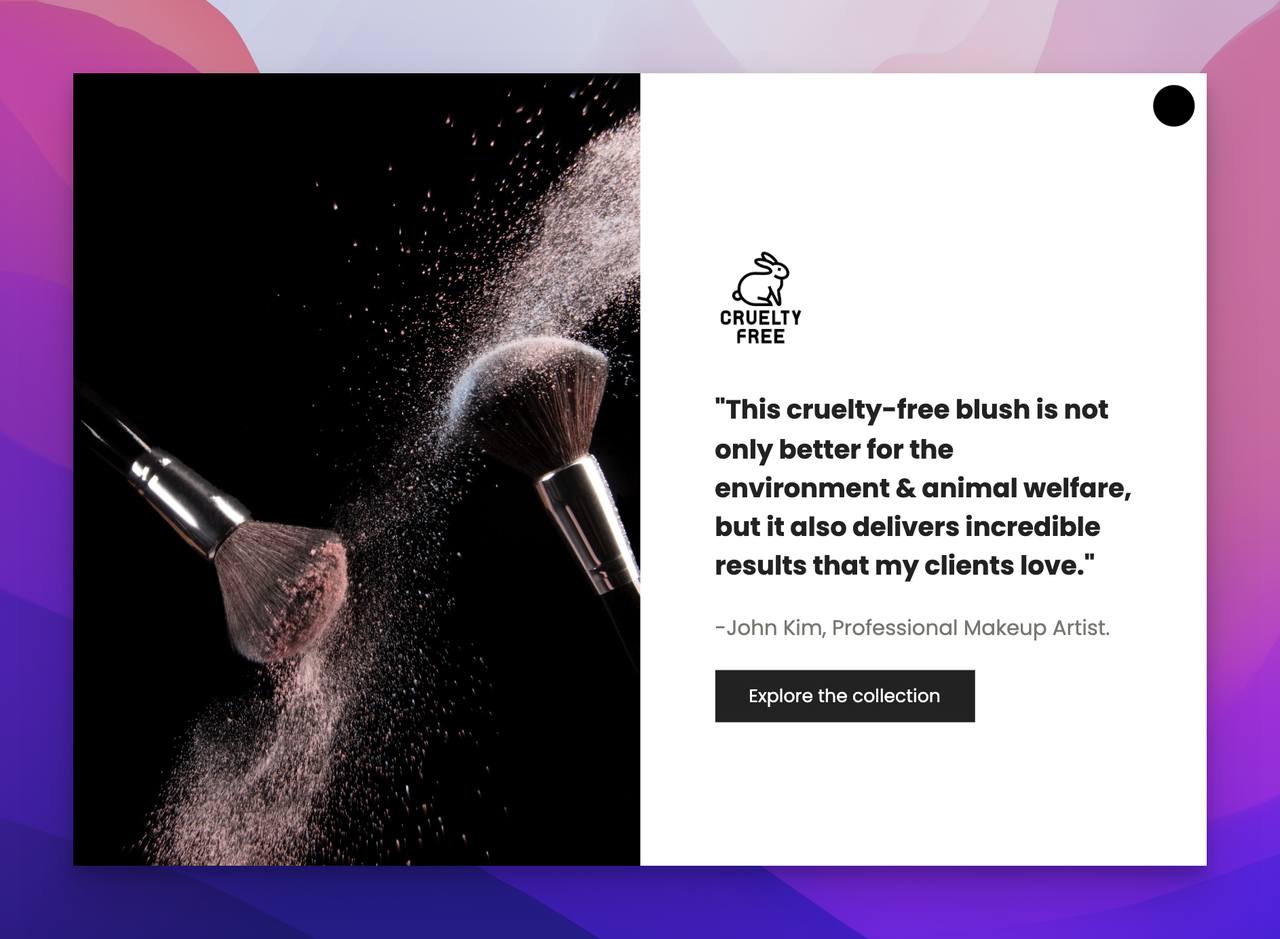
Intriguing, right? There's a wealth of creative ways to leverage satisfied customers' reviews with a popup.
Tailor your popups to target users' behavior, from giving your first-time visitors a glowing impression with testimonials to displaying a cart abandonment popup featuring a rave review of the product they're about to leave behind.
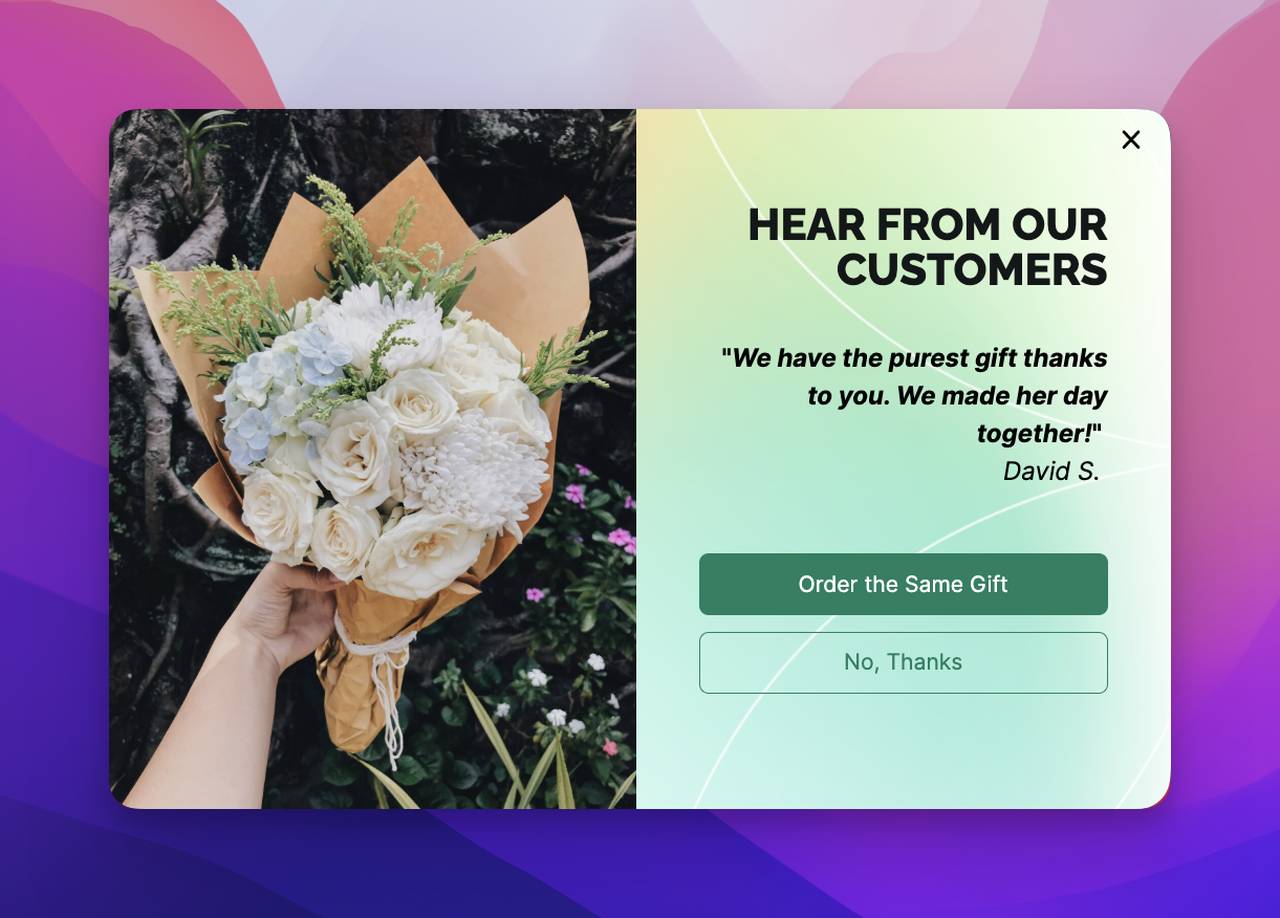
The possibilities are endless!
The cherry on top? With the right popup builder, you won't need to design your popup from scratch.
Simply pick a template and customize it to suit your brand's unique needs and style.
2. Showcase Delighted Customer Reviews on Your Homepage & Landing Page
You want your happiest customers' testimonials beaming on your homepage, creating a lasting first impression that captures visitors' trust.
Sure, you can tout your product's incredible features, but do you know what indeed resonates with your audience?
It's the validation from customers who have tried and vouched for your product.
Consider Ahrefs, a prime example of a masterful testimonial showcasing.
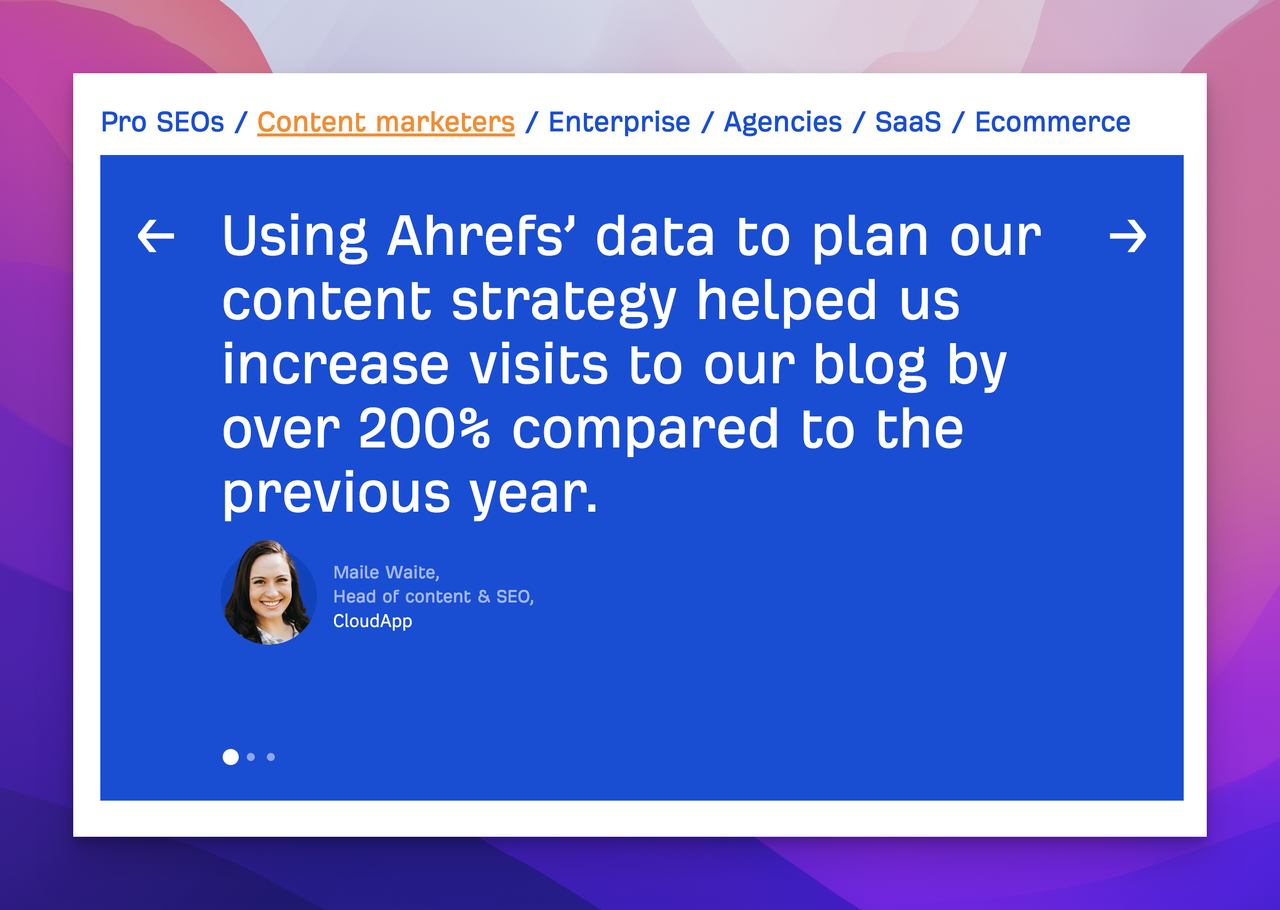
After eloquently describing their solution, they turn the spotlight on industry experts who have praised their tool.
This clever move reinforces their message and connects with the audience on a deeper level.
Ahrefs goes even further by tailoring the testimonials to different personas and categorizing them to cater to different groups, from SEO experts to content marketers, e-commerce, and SaaS owners.
This demonstrates their commitment to making their testimonials truly shine.

But they don't stop there!
They also feature rating badges from directory platforms like Capterra, Trustpilot, and G2, adding further credibility. (We'll dive deeper into this strategy later on.)
3. Enhance Email Marketing Campaigns with Powerful Testimonials
They say words that soak into your ears are whispered, not yelled, and the same thing applies when it comes to earning the trust of your target audience.
Featuring powerful testimonials in your email marketing campaigns can be the subtle nudge your audience needs to take action.
When readers open your email and scroll to the bottom, it means you’ve piqued their interest.
Now, strategically placed customer testimonials in the email footer or subject line can persuade them to click through.
Better still, consider launching a promotional campaign showcasing a specific product alongside a customized testimonial from a customer who speaks passionately about that item.
The best approach, however, lies in crafting a compelling story.
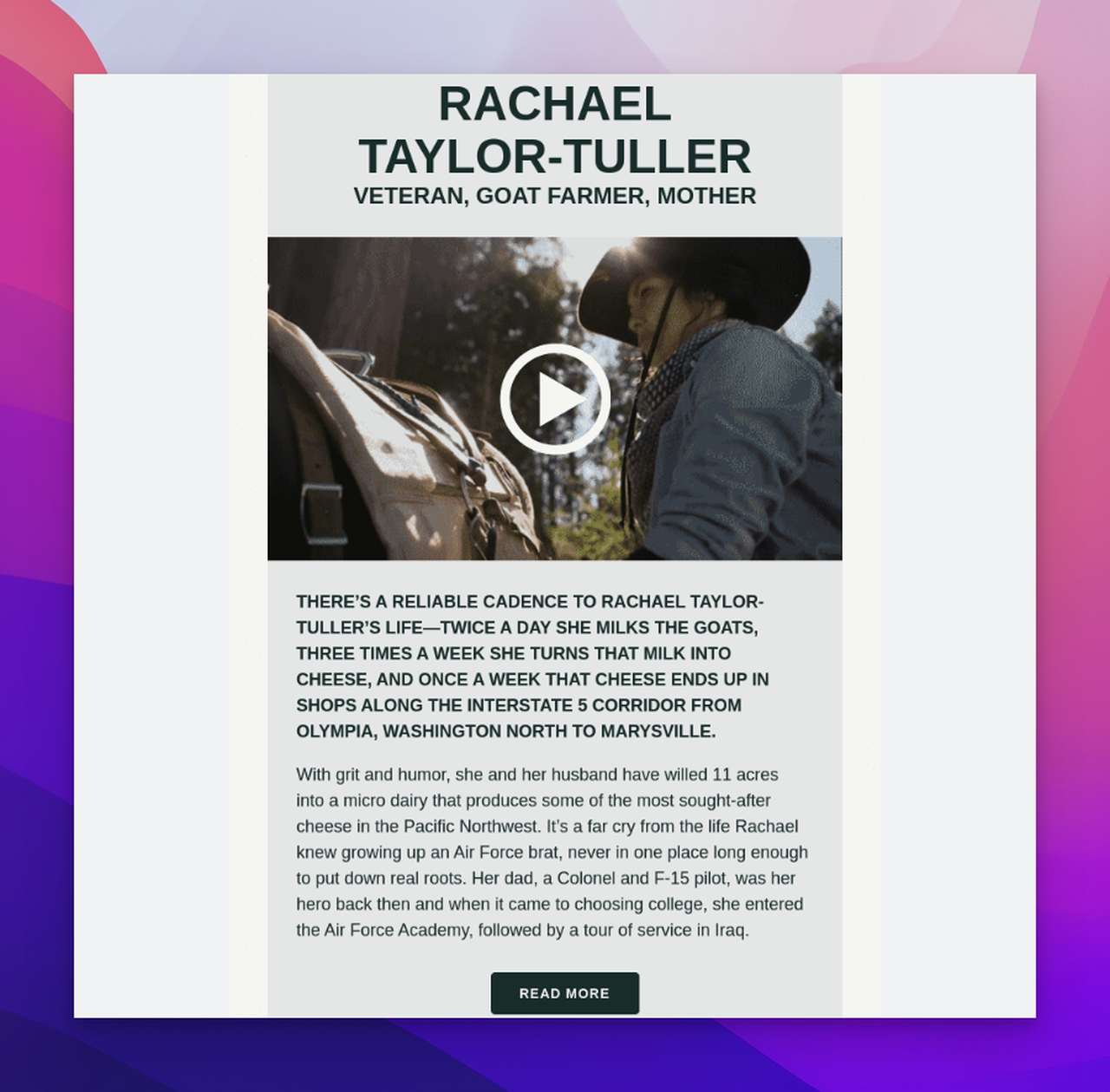
Take Danner, for example. Instead of merely quoting a satisfied customer, they invest in the customer's story and link it to their new boot collection.
Examining the entire email, you'll notice that the quotes from the customer, Rachel, are moderately promotional. Instead, she shares her daily lifestyle and the joy it brings her.
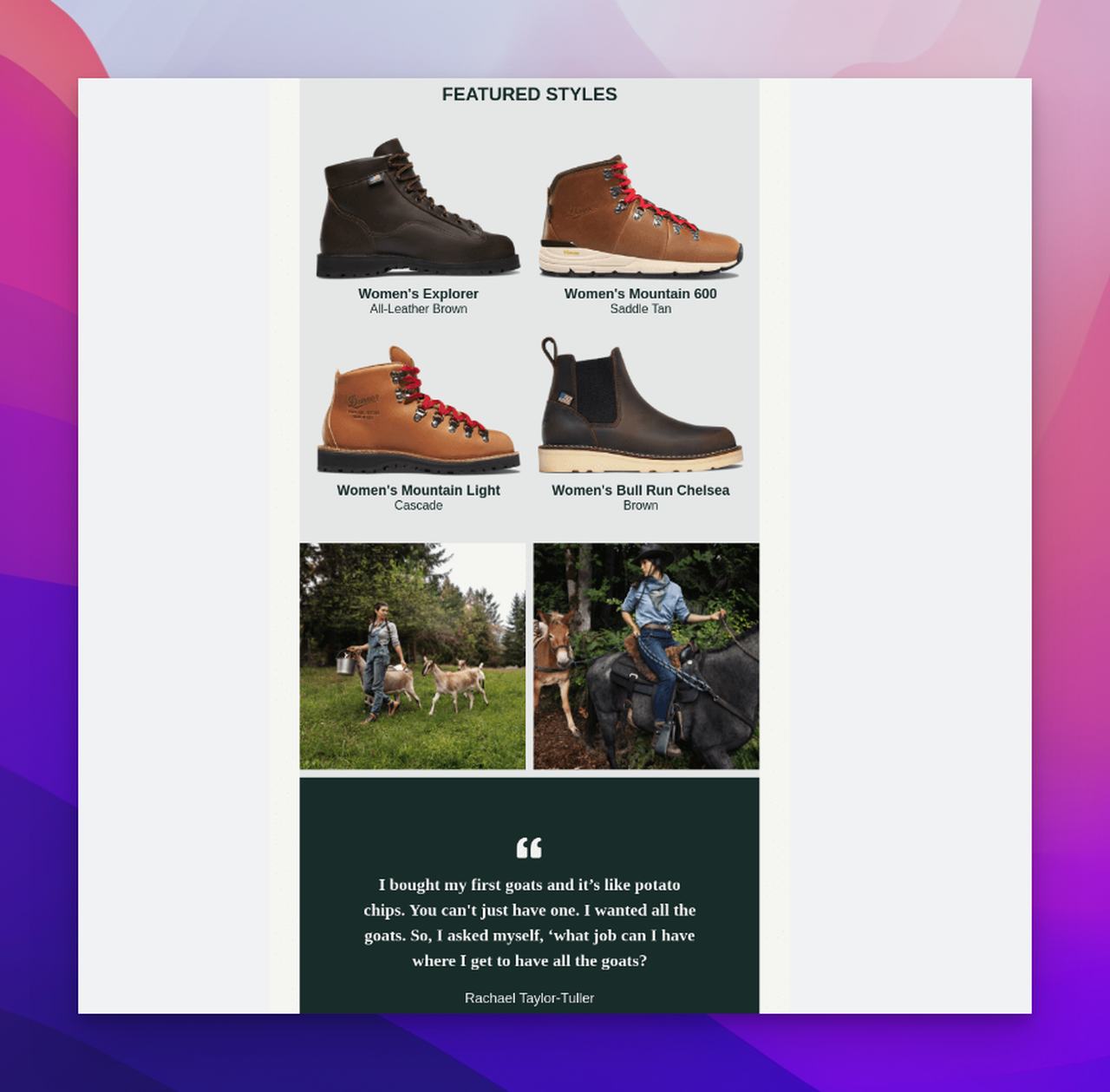
This offers readers a glimpse into the life of a happy customer while inspiring them to pursue their dreams - and perhaps purchase a pair of Danner boots as well.
Remember, sometimes your customers' testimonials don't need to be explicit; showcasing the contented life of a satisfied customer can be just as persuasive.
4. Feature Customers Sharing Product Experiences in Video Reviews
Four times as many customers prefer watching a video about a product than reading about it.
Videos can showcase functionality and evoke emotions in ways that product descriptions simply can't.
So, if a customer is happy enough to purchase from you & write a review for your product, why not encourage and incentivize them to create a video detailing their experience as well?
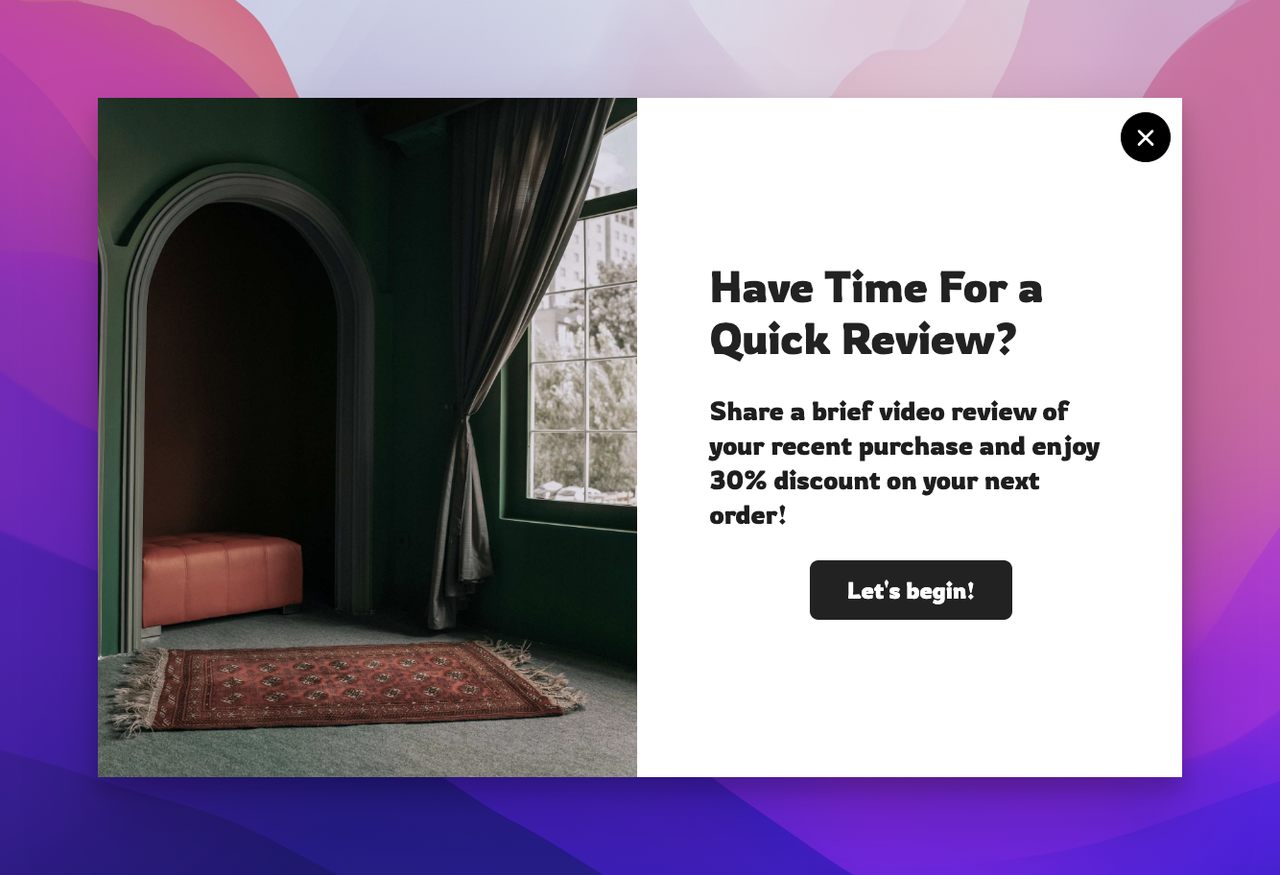
Not everyone will scroll down to read a testimonial, but a video can grab their attention and persuade them to dig deeper and, who knows, make a purchase.
Video testimonials can help close leads to customers, but positioning them strategically is essential for optimal results.
Take a look at Slack's customer stories page.
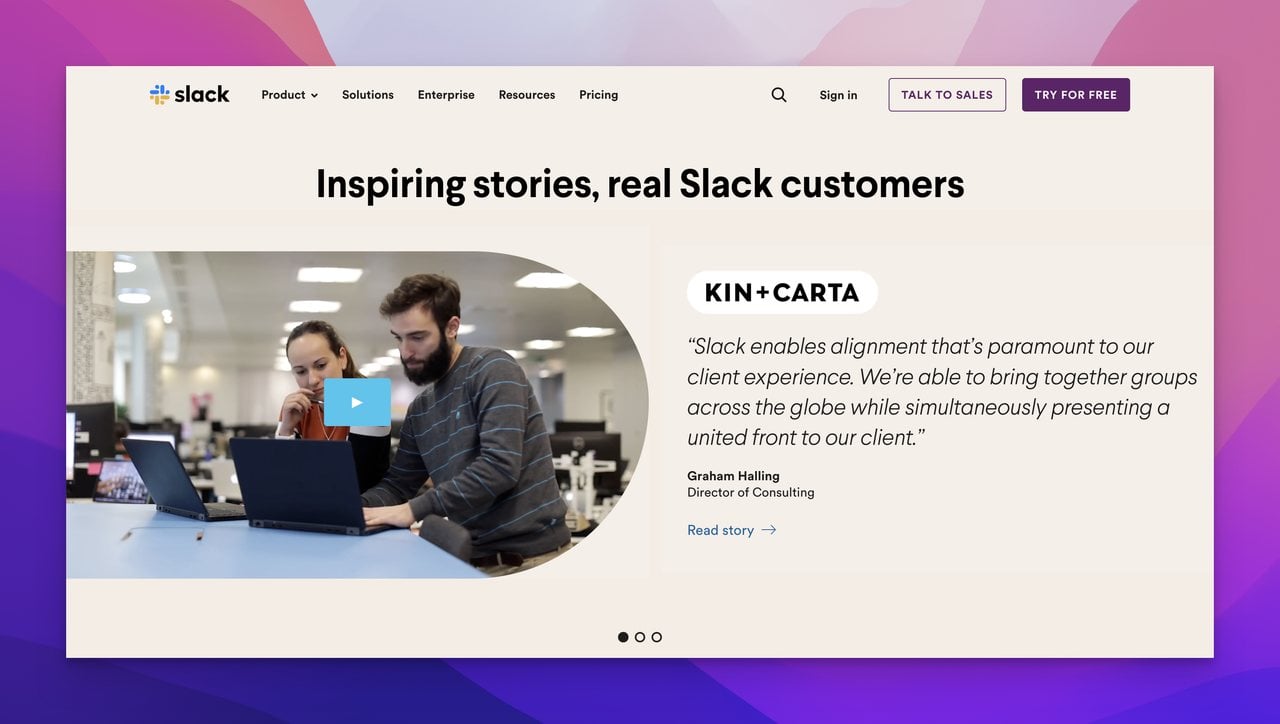
The first thing you'll notice, alongside a customer testimonial quote and call-to-action, is a video with a captivating preview animation, enticing visitors to watch.
The video is concise, at just 3.5 minutes, and you don't need to watch it all to grasp the customer's satisfaction.
The customer begins by introducing their organization and pain points before describing how Slack helped them overcome these challenges.
In just 30 seconds, you'll understand the customer's context, and the rest of the video becomes a testament to Slack's success, rather than just the customer's journey.
5. Boost Conversions by Incorporating Testimonials in Paid Ads
A picture paints a thousand words, and customer reviews add credibility, making your ad the cherry on top.
By using real-life customer experiences, you effectively harness the power of social proof, which can make your ads more appealing and trustworthy to potential customers.
To optimize this strategy, choose compelling and authentic testimonials that strike a chord with your target audience.
Including customer photos, names, and a brief section of their review can add a personal touch and increase credibility.
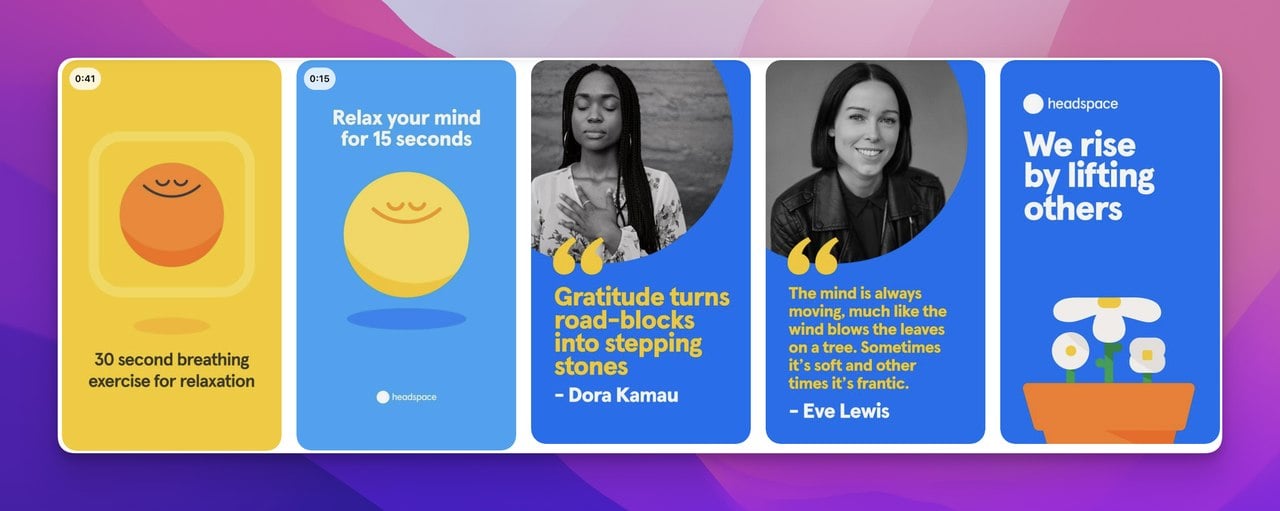
Be sure to focus on testimonials that highlight the unique selling points of your product or service, as well as the benefits it brings to customers.
For example, incorporating testimonials in retargeting ads can help remind potential customers of the value your product offers, reinforcing their interest and increasing the likelihood of converting them into buyers.
6. Strengthen Your Online Presence with Compelling Case Studies
Do you have customers who've had a fantastic experience with your product or service?
Consider showcasing their journey in a compelling case study.
This approach is an effective way to use testimonials and demonstrate the real-life impact of your offerings.
A well-crafted case study outlines the customer's roadmap to success, highlighting their pain points and explaining how your product or service helped them overcome obstacles.

By presenting actual numbers and tangible results, you can foster readers' trust in your brand.
The key to creating an engaging case study lies in its authenticity and focus on the customer.
Avoid sounding overly promotional; instead, concentrate on how the customer utilized your features to achieve their goals.
Incorporating quotes and videos of satisfied customers can further enrich the narrative and strengthen its credibility.
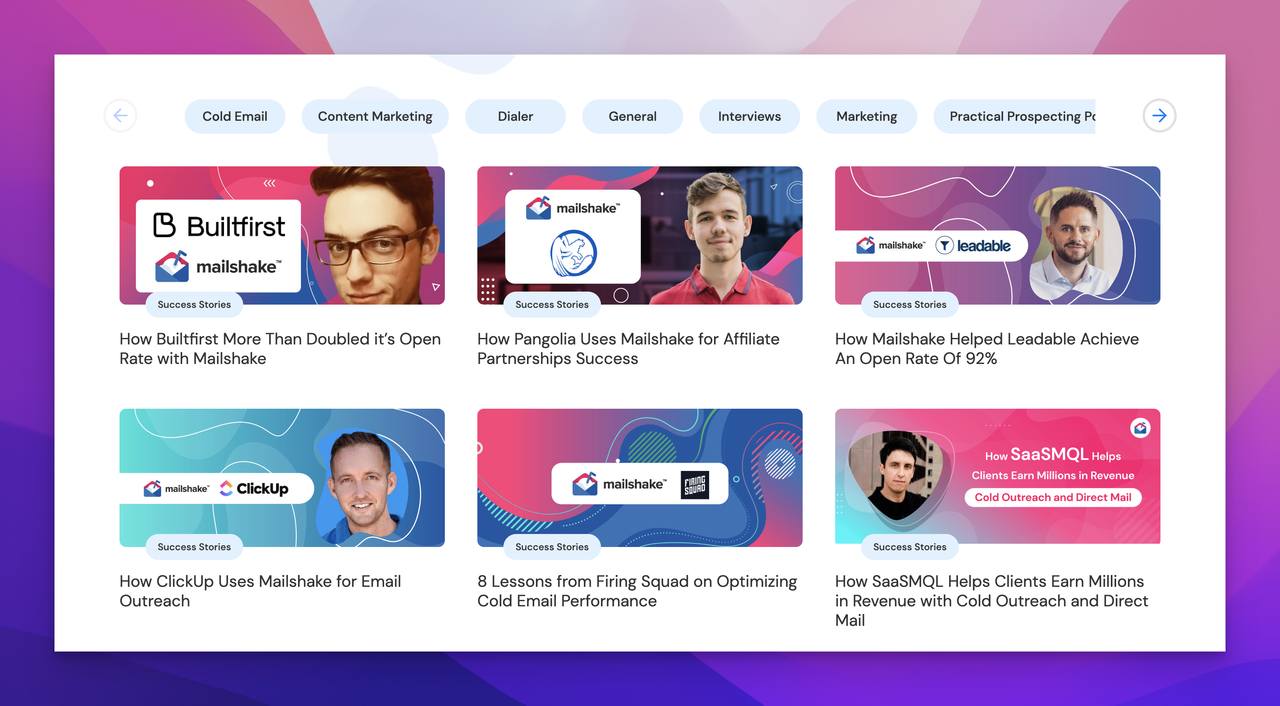
Many brands dedicate a "success stories" page on their website to share various customer experiences.
This not only celebrates their customers' accomplishments but also demonstrates the brand's commitment to quality.
By crafting honest, customer-centric case studies, you can create a powerful and persuasive marketing tool that resonates with potential buyers, showcasing the real-world value of your product or service.
7. Collaborate with Brand Ambassadors on Engaging Blog Posts
Identify your most loyal customers who resonate strongly with your buyer persona and possess enough influence to inspire others to take action.
These satisfied customers will likely be more than happy to review your product and provide a testimonial.
Look how Fenty Beauty is promoting the videos of customers reviewing its products on Instagram:
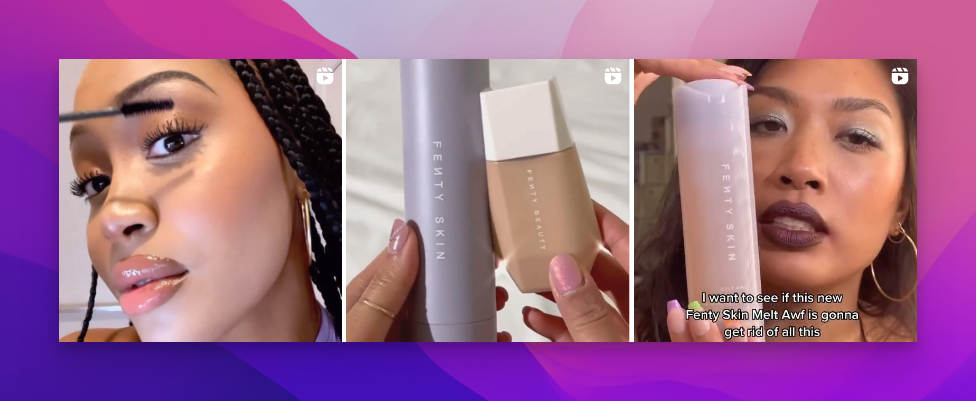
Now is the perfect time to interview them and craft a blog post about their experiences.
One innovative approach to leveraging success stories is by combining different formats, such as a Q&A session, audio and video testimonials, or interviews with clients that delve into their experiences using your product or service.
These interview-style testimonials provide valuable insights and can serve as long-form content on your website.
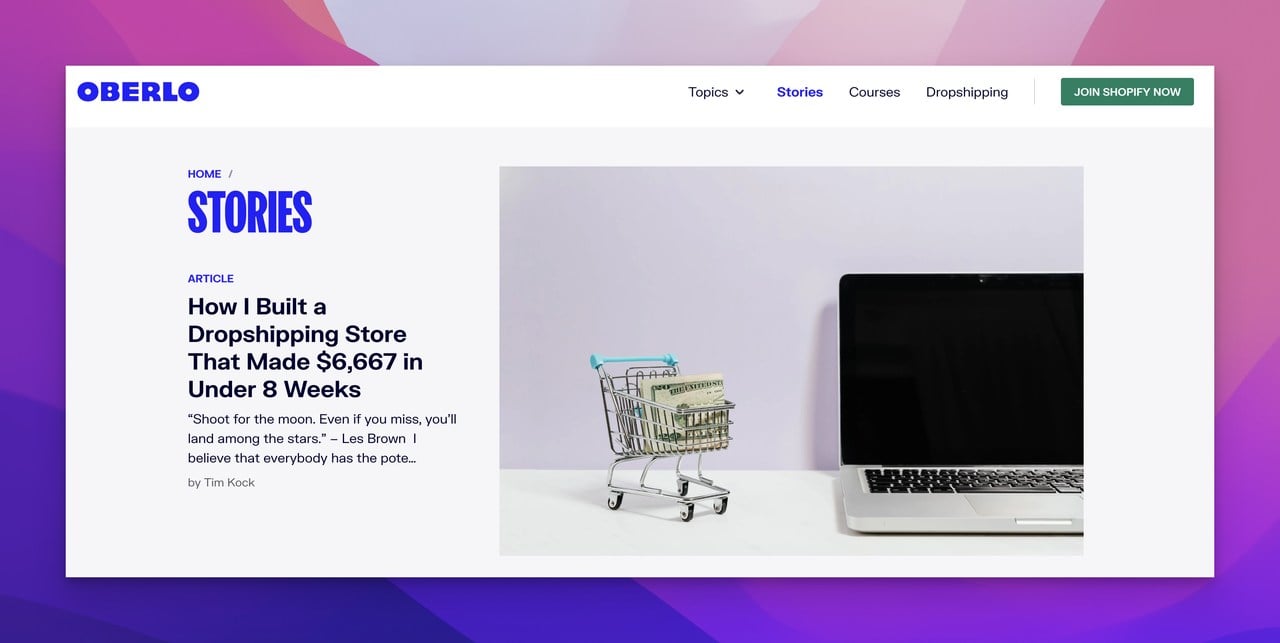
The beauty of these in-depth testimonials lies in their versatility; they can be repurposed for various marketing campaigns, amplifying your brand message across different channels.
By showcasing genuine customer experiences in diverse formats, you can create engaging content that resonates with your audience and highlights the value of your product or service.
8. Inspire Top-of-Funnel Engagement with Satisfied Customer Stories
Imagine stepping into a cozy coffee shop, where you're greeted by the warm aroma of freshly brewed coffee and the soft hum of conversation.
As you settle down, you overhear a group of people nearby sharing their positive experiences with a certain brand.
Curiosity piqued, you can't help but pay attention, and you find yourself drawn to learn more about this brand and its offerings.
This is the essence of top-of-the-funnel engagement, where potential customers first become aware of a brand and its products.
Now how to make it happen digitally?
To create this warm and inviting atmosphere, you can share satisfied customer stories to evoke emotions and make a connection.

One effective approach is leveraging captivating visuals, such as GoPro's action-packed user-generated content, which allows potential customers to envision themselves using the product.
Additionally, sharing compelling stories that highlight the customer's journey, like Airbnb's heartwarming host and guest experiences, humanizes the brand and resonates with potential customers.
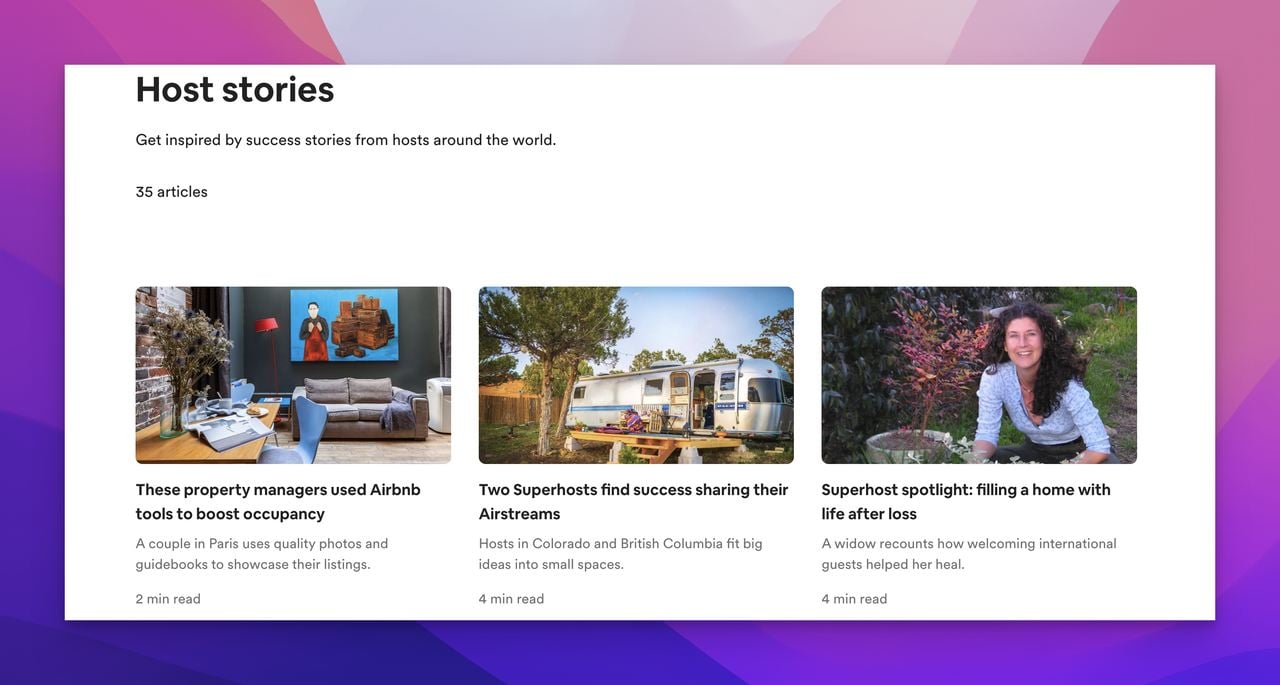
By embracing a warm tone, and storytelling techniques, and weaving together these examples, you can create engaging and easy-to-read content that effectively captures the hearts and minds of potential customers at the top of your sales funnel.
9. Amplify Testimonial Impact through Strategic Social Media Promotion
Have you ever wondered how to maximize the potential of your customer testimonials?
You've already added quotes, video testimonials, or even both to your welcome pop-ups, landing pages, and case studies.
But there's still so much untapped potential in those powerful social proofs.
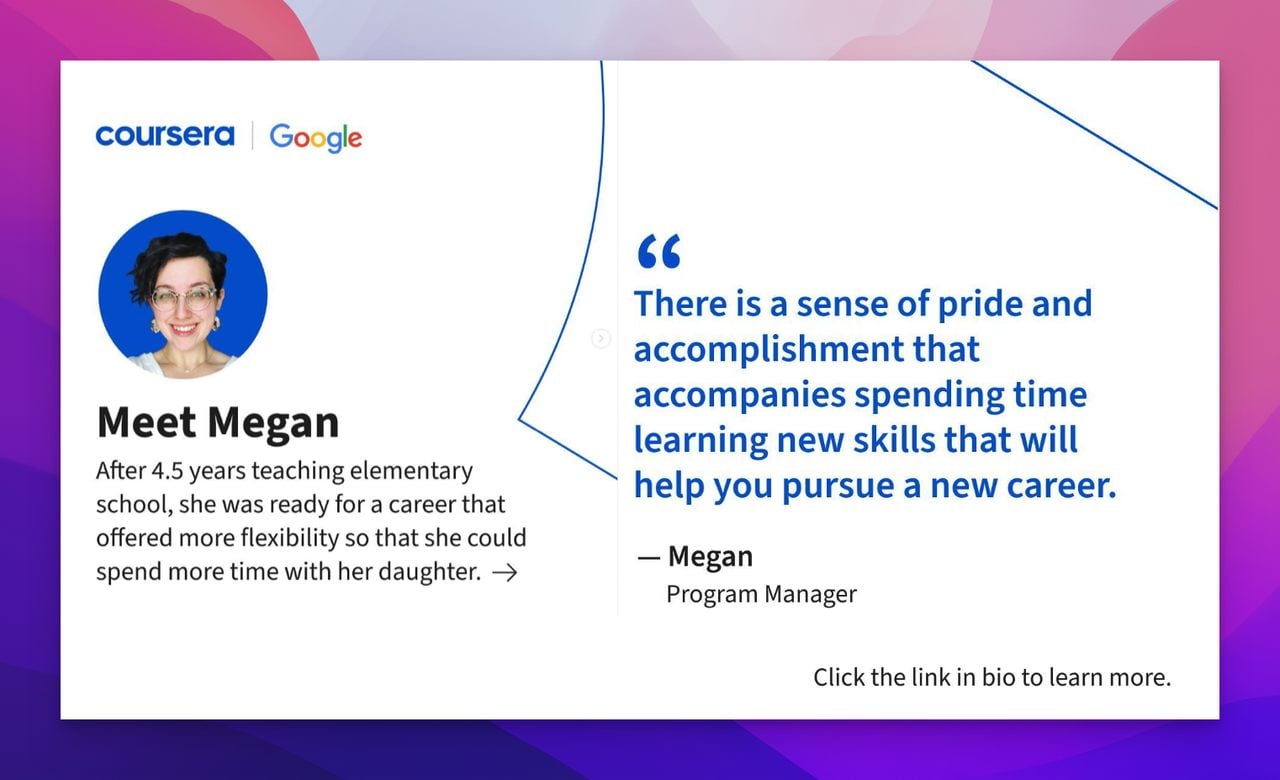
Don't let that goldmine of credibility go to waste; repurpose your testimonials for your social media platforms.
Start by designing eye-catching and platform-specific formats for each medium, catering to the preferences of your followers.
Perhaps adopt a witty and casual tone on Twitter, create a trendy audio post on TikTok, and maintain your brand identity on Instagram and Facebook.
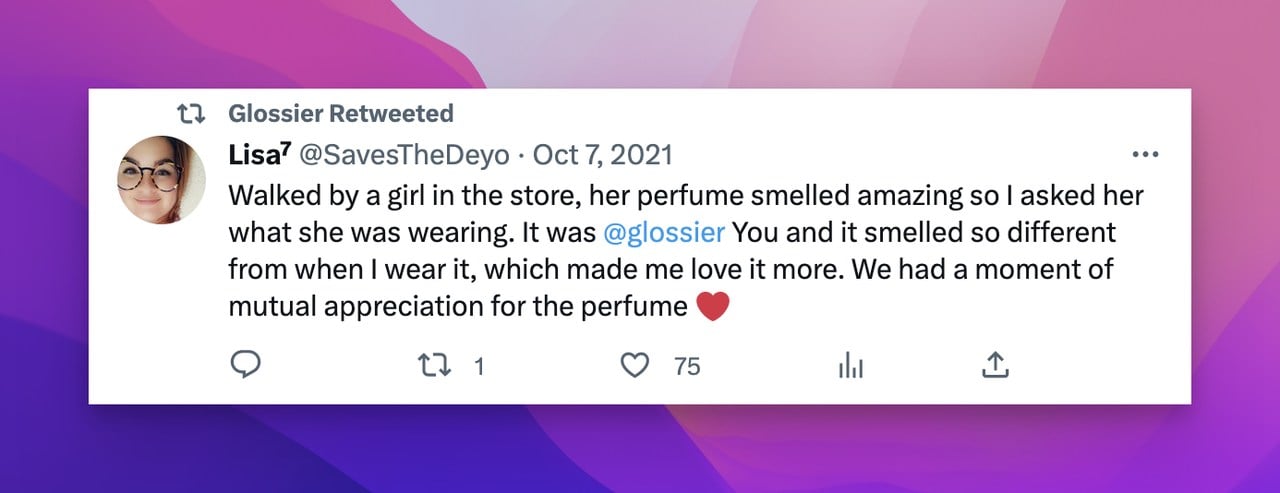
But don't forget about LinkedIn, a treasure trove of B2B marketing.
By tailoring your testimonials to the platform and the target buyer persona, you can effectively engage with a wide range of potential clients.
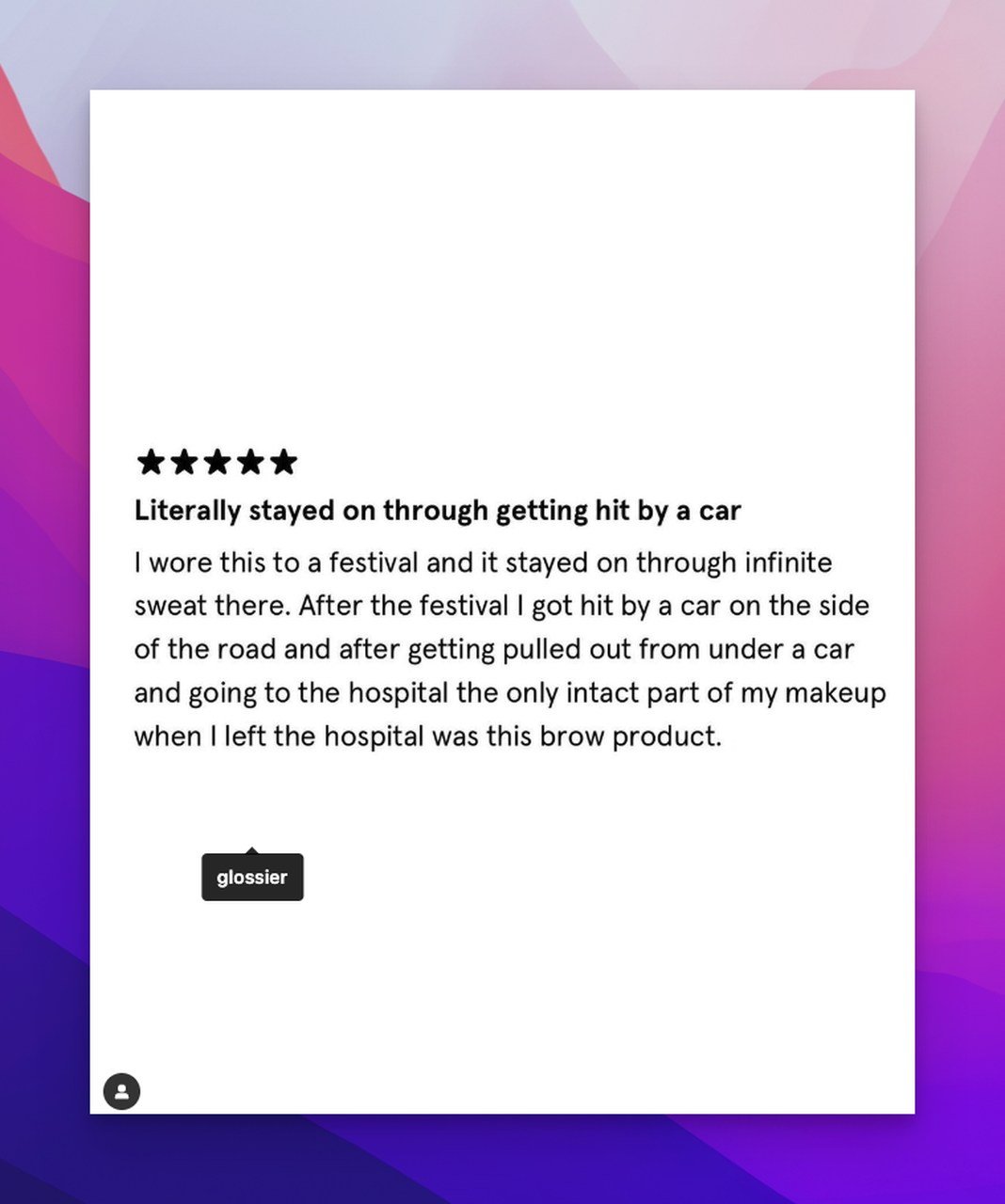
And to take it a step further, consider using paid ads to boost your post's reach and visibility.
By creatively repurposing your customer testimonials across various social media platforms and ad campaigns, you'll be able to leverage their full potential, expand your reach, and create a lasting impact on your audience.
10. Encourage User Reviews on External Platforms with Incentives
With 93% of online experiences beginning on a search engine, ensuring a positive online reputation for your brand is crucial. While you can't control what people say, you can certainly encourage satisfied customers to share their thoughts.
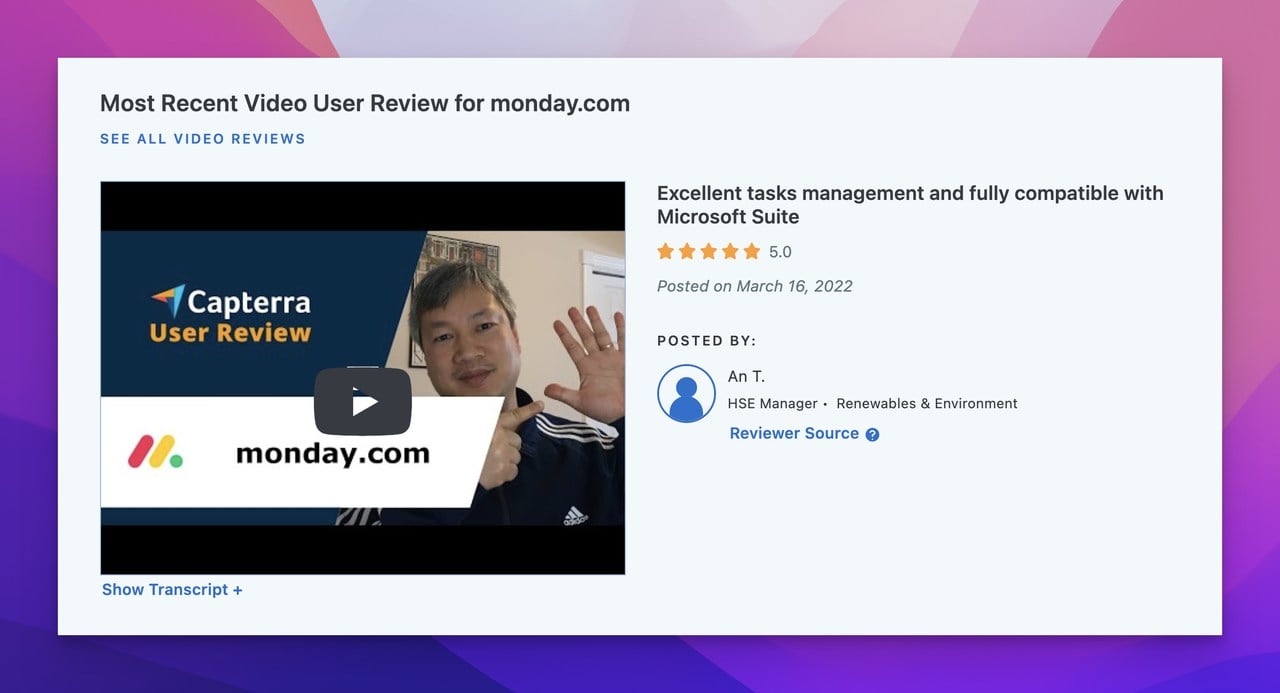
Online reviews wield significant influence, as consumers are 50% more likely to be swayed by them than by discount offers.
So, why not combine the two to create a winning strategy?
Encourage your satisfied customers to leave reviews on directory platforms like G2 and Capterra, and offer them perks like free shipping, discounts on their next purchase, or a boost in your customer loyalty program.
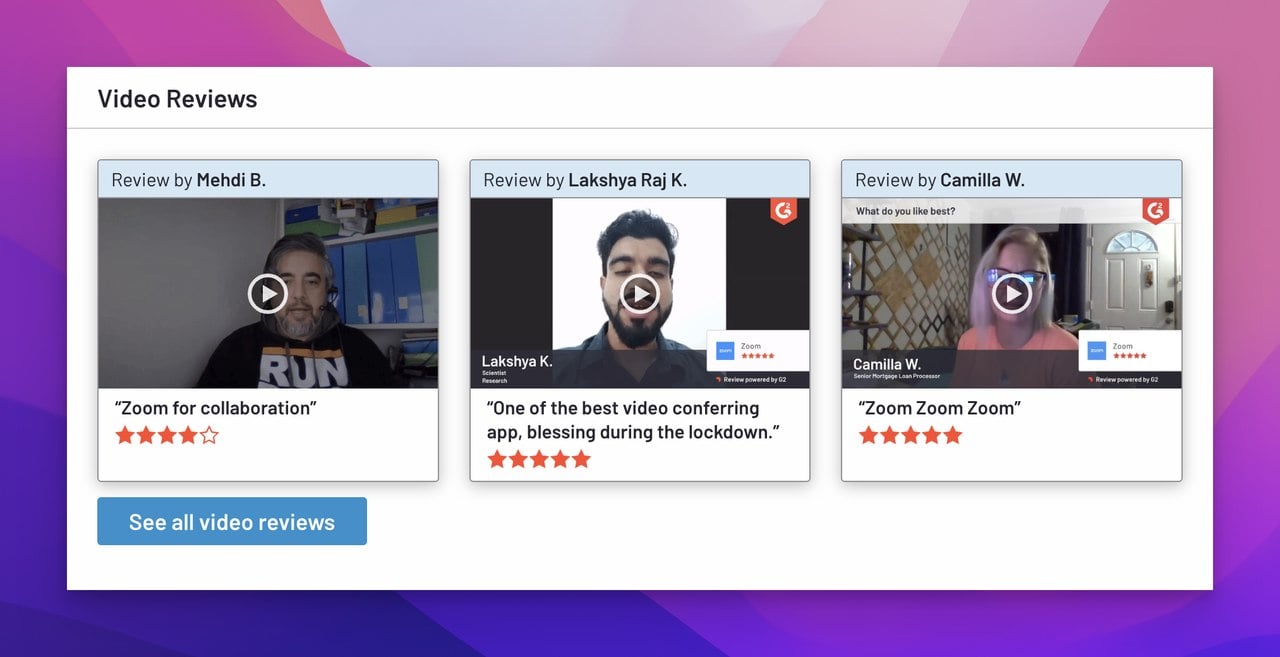
Incentivizing customers to leave reviews on third-party platforms is an effective way to build credibility.
Later on you can add these rating badges on your website and showcase how trusworthy and user-friendly are your products/services.
People may be skeptical about what you say about your own brand or even disregard the testimonials on your website, but an unbiased review from a satisfied user on another platform can genuinely capture their interest.
By leveraging the power of online reviews and rewards, you'll not only enhance your brand's reputation but also foster lasting customer relationships.
Why Do You Need to Use Testimonial Advertising for Your Business?
In today's competitive market, businesses need to stand out and build trust among potential customers.

Testimonial advertising is a powerful tool that can help achieve this by showcasing real-life success stories in a relatable and engaging manner. Here are the top reasons why businesses should leverage testimonial advertising:
➤Increased Conversions: Featuring testimonials can help potential customers overcome doubts and increase conversion rates.
➤ Customer Retention: Sharing customer success stories can foster loyalty among existing customers.
➤ Overcoming Skepticism: Authentic testimonials help alleviate skepticism in a world where fake reviews are rampant.
➤ Storytelling: Testimonials allow you to tell your brand's story through the eyes of your customers, making it more engaging and relatable.
In a nutshell, testimonial advertising is essential for businesses seeking to stand out in a crowded marketplace.
By leveraging authentic customer experiences in a genuine and persuasive manner, your brand can build trust, boost conversions, retain customers, and engage your audience through storytelling.
Integrating testimonials into your marketing strategy will not only resonate with your target audience but also showcase the real-life benefits of your products or services.
Final Words
Now that you're equipped with creative ways to use customer testimonials in your marketing strategy, feel free to mix them up, experiment with new approaches, and tailor them to your brand's unique needs and style.
Including well-crafted testimonial popups can be an effective way to grab your audience's attention without being overly promotional.

Capitalizing on the power of authentic customer experiences can elevate your marketing efforts and help you establish a deeper connection with your target audience.
The possibilities are endless when it comes to showcasing the love and satisfaction your customers have for your products and services.
FAQs

What are the Key Elements to Include in a Compelling Customer Testimonial?
A compelling customer testimonial should include the customer's name, their photo or logo, a specific description of the problem they faced, how your product or service solved their issue, and the tangible results they achieved.
How Can I Encourage Customers to Write Testimonials?
Consider offering incentives such as discounts, freebies, or exclusive access to new products or services. Make it easy for them to leave a review by providing a simple review form or directing them to review platforms. Reach out to satisfied customers personally and ask for their feedback.
How Can I Effectively Repurpose Customer Testimonials Across Different Channels?
Adapt the content and format to suit each marketing channel. For example, use short quotes for social media, video testimonials for your website, and in-depth case studies for your blog. Tailor the tone and style of the testimonial to match the audience preferences on each platform.
How Often Should I Update My Testimonials in Marketing Campaigns?
Regularly updating and refreshing your testimonials is essential to keep your marketing campaigns fresh and relevant. Aim to update your testimonials every six months or whenever you launch a new product or service. This will ensure that your marketing materials showcase the latest and most relevant customer experiences.
Here are some relevant topics you might want to check out:
- Impressive Social Proof Statistics You Should Know
- Best Social Proof Tools That Will Better Your Business
- What is a Quality Lead? 6 Ways to Boost Your Lead Quality
- Best Customer Loyalty Programs & Ideas That Work Wonders





